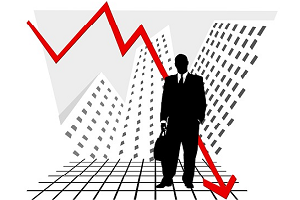 If you asked a prepper where the safest place to live is, you’ll probably receive a variety of opinions. Everyone has their preferred region or climate, which will vary from person to person depending on their work status, family, and health issues etc. However, there is one opinion that remains consistent among all preppers. Ask them where you should live, and they’ll all tell you to “get away from the city.”
If you asked a prepper where the safest place to live is, you’ll probably receive a variety of opinions. Everyone has their preferred region or climate, which will vary from person to person depending on their work status, family, and health issues etc. However, there is one opinion that remains consistent among all preppers. Ask them where you should live, and they’ll all tell you to “get away from the city.”
The high population density of urban areas makes them hotbeds of ethnic and cultural animosity, poverty, crime, and stifling regulation. Cities are fairly easy for police and soldiers to lock down compared to the countryside, and are known to face food, water, and energy shortages during a disaster. In short, cities are dysfunctional and dangerous, and they become even worst when the system breaks down.
While living in remote rural communities does carry some risk, it’s widely believed that cities will be far more dangerous should we face economic collapse, or a grid ending event.
If you’re seeking real world evidence for this idea, then look no further than modern day Russia. The past six months has seen the ruble plummet 50 percent to the US dollar, as Russians from all walks of life scramble to buy as many luxury goods as they can in an effort to preserve their wealth.
But in the sleepy villages that dot Russia’s vast countryside, people seem to have a rather blasé attitude over these developments.
Voskresenskoye (Russia) (AFP) – In a myriad of villages like Voskresenskoye, nestled deep in the Russian countryside, the monetary turmoil roiling the nation’s large cities still seems a largely distant threat.
“This crisis is for the rich, for people who have dollars. We never had money here,” said Tamara Boychenko, a 68-year-old retired resident of the village located in northwest Russia about 80 kilometres (50 miles) from Saint Petersburg.
“I can’t afford much with my pension of 15,000 rubles (200 euros, $250). Luckily I have my vegetable garden,” said Boychenko, smiling.
That rustic, phlegmatic attitude is far removed from Russia’s big cities, whose residents watched in panicky dismay the plunge of the ruble — which in the first two days of last week alone lost a quarter of its value.
The people who live in these isolated communities have long endured without the luxuries of modern civilization. It’s very common for Russian villagers to live without running water or electricity, and they typically grow their own food. This self reliance is far more common than it is in the United States, and it could be argued that there is a very good historical precedent for this attitude.
“Putin is a good man, but what can he do? It’s too complicated, the country is too big, and corruption is everywhere,” said Kushevich, before confessing to “preparing for the worst, as usual”.
That sense of fatalism was shared by Tatyana, who sells candles in the small church in the neighbouring village of Kobrino.
“It doesn’t really matter, we’re used to following along,” she said.
“We survived the fall of the USSR, and the crisis of 1998. This isn’t the first time, and things will work out,” said Tatyana.
Pleasantries towards Putin aside, it’s clear where these people’s resiliency comes from. They’ve survived economic collapse before, and folks like Tatyana are likely the descendents of people who’ve survived 2 global wars, famines, genocide, and decades of tyrrany. These people are very familiar with catastrophe, and their bleak responses towards global events have disguised their hardiness and self reliance.
“I don’t expect anything at all from either the government or (President Vladimir) Putin” in this current crisis or in general, said Boychenko.
Her feelings were echoed by Stanislav Kushevich, a farmer who runs a small butcher’s shop nearby.
“We can change nothing. We have no impact on anything,” he said with a sigh.
Neither the turbulence of the markets nor measures taken by the government have done much to improve or worsen his lot, he believes.
“I have no savings, and I spend everything I make on my farm. I’ve never travelled abroad, nor bought imported goods,” the bearded 46-year-old said.
Words like that may be shocking to most Americans. The last time our society fell on truly hard times was during the great depression, and the generation that lived through that era is slowly fading from memory. The Rural folks of Russia on the other hand have seen it all, and are content to ride out the storm. They’ll continue to live off the land, and grow their own food, and buy from local markets, as our chaotic world passes them by.
And if you sift through their weary and cynical comments, you’ll find a group of people who refuse to give up, and have decided to live peaceful rural lives that will be ignored by their central government, and the machinations of their global rivals. They’ll probably go on surviving too, long after their urban cousins have gone through the wringer of war and economic collapse. I suspect our own urbanites won’t fair much better.
